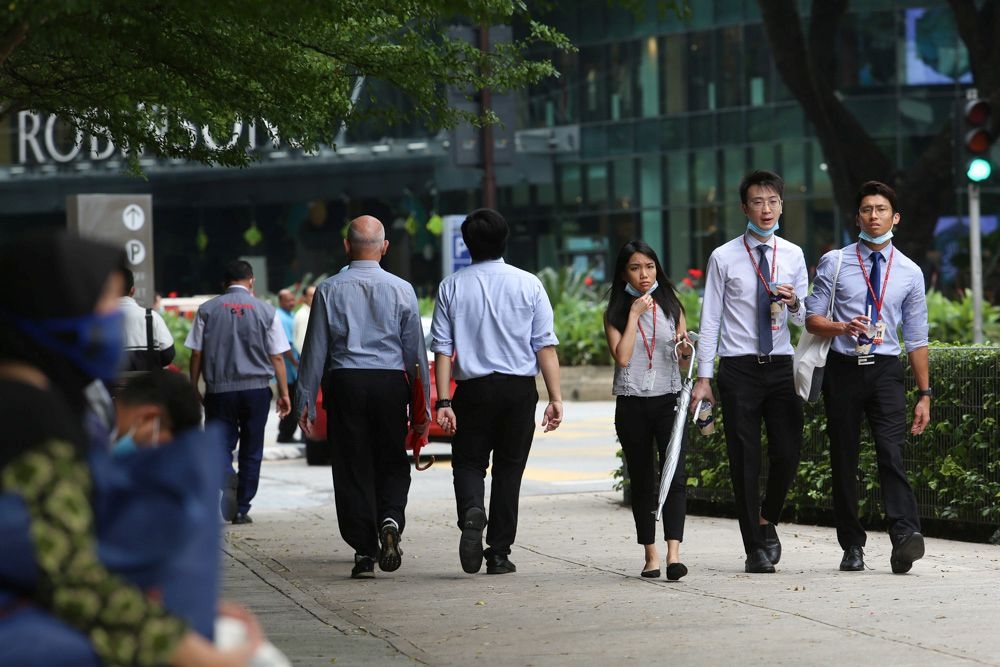MAY 29 ― Working long hours and getting chronically stressed over our jobs is nothing new to Malaysians.
About a decade ago, Jobstreet published a report declaring that about 60 per cent of Malaysians faced work overload and have no time for their families; more than three quarters of those surveyed claimed they worked two to five hours beyond normal office hours.
In 2019, an AIA Malaysia study concluded that 51 per cent of Malaysian employees faced sleep deprivation as a result of, among other things, long hours at the office and over-working.
In this context (of job stress creating over-exhaustion among workers), the Employment Act 1955 was amended last year to reduce weekly working hours from 48 to 45 (Note: If I work five hours beyond the normal 8 as per the Jobstreet report above, my work week is 65 hours!).
In addition, Human Resource Minister Steven Sim said recently that workers can apply to their employers for flexible working arrangements based on time, days, and location of work according to Sections 60P and 60Q of the same Act.
Sim was responding to a post by a portal regarding workers in Singapore now being able to apply to work four days a week, work more days from home, and also apply for phased working hours.
No doubt both governments are starting to recognise the urgency of reducing work overload, unhealthily long office hours and so on.

I haven’t found much more recent research or news but from my own experience it’s not uncommon to see family, friends and colleagues staying in the office until way past closing time (with some even continuing their work after they reach home).
All over the globe, working hours have increased. Especially given today’s economic climate, the very thought of losing one’s bread-and-butter spurs more white-collar folks to skip weekday dinners with their families (and treat their homes like “for-sleep-only” pods).
It sounds almost farcical that in such a highly technologically saturated society as today’s, people still feel compelled to work 12-hourish days ― or is it?
Pros
This is not to say that there isn’t a point in working late or even that there aren’t some benefits.
Some workers are genuinely less productive than others, hence they need to put in more time. Throw in the 183 requests that tend to happen between walking from one’s desk to the toilet, and it’s not surprising if some folks need to stay back regularly.
They wouldn’t be able to complete their work otherwise.
Drawing from my own experience in consulting, working late may also be a non-negotiable on some projects. This could be the case where the activity involving the system can only happen after office hours or if said project is severely time-boxed.
This may include end-of-day runs, unit testing, project cutover, etc. In such cases, to not stay late could significantly blow the budget.
(Having said that, one has to ask how and why these projects always overrun projected timeframes and costs despite the frequent late nights).
There are a few other good reasons for staying late but the one and only positive reason for doing so is because you’re totally in love with your job.
You’re crazy about your work, you love your team and every moment fills you with something akin to eternal joy — that is the only worthy reason to work like a night owl 24/7.
Cons
Ironically, from the many health-related articles on the subject, it appears as if you’d be healthier smoking 10 Marlboros an hour than working late.
The Australian National University in 2017 claimed that if you push past 39 (!) hours a week too often, your mind and your body start to rot, your heart becomes more fragile and you might just drop dead.
Basically, those quips about workaholics having no life aren’t that far off the mark. Workaholism may actually cause you to die young.
Working late also affects family life (duh). This is especially so for women. For new and soon-to-be mums, “normal” office life dah susah sangat for you and your baby, let alone the kind of life which makes clocking out at 8pm appear “early”.
I also personally know quite a few friends who have quit their jobs just to take care of their children.
Finally, given how some studies suggest that longer hours do NOT equal more productivity, we have to wonder why almost no CEOs stand up and speak against this crazy habit.
Moving forward?
It’s probably no surprise that Malaysians prefer a better work-life balance. We don’t need a PhD to grasp this: people do have a life outside of work, and they want to live it.
Or do we? If I’m a mega late-night worker, do I know why exactly I’m doing it?
If we’re going to burn the midnight office oil, it wouldn’t hurt to be clear about the reasons why or what precisely I’m trying to achieve. This way, however late you stay (or early you leave), chances are you’re doing so because you totally want to do it.
You’re not doing it because “that’s the way things are”, or because “everyone else is doing it”.
Do we know what our priorities are? Let’s work on those. Say No to anything else that doesn’t fall within pre-agreed Important Stuff.
Long office hours aren’t going away anytime soon. But as individuals I guess it wouldn’t hurt to really ask what we want out of life and work?
* This is the personal opinion of the columnist.






















